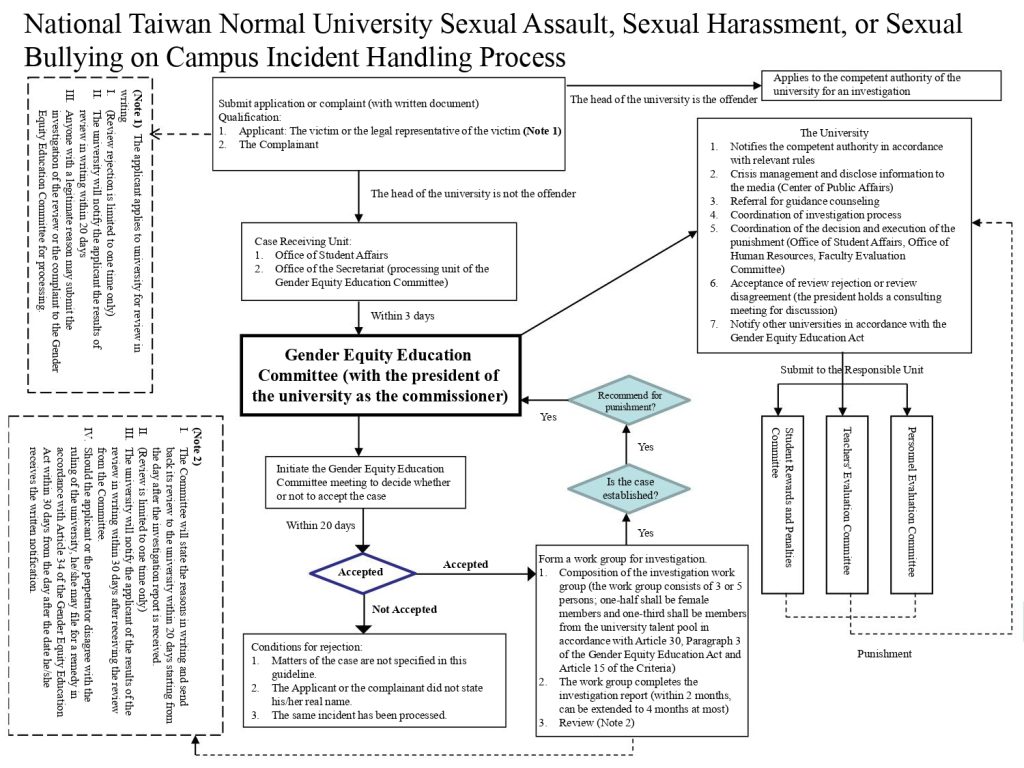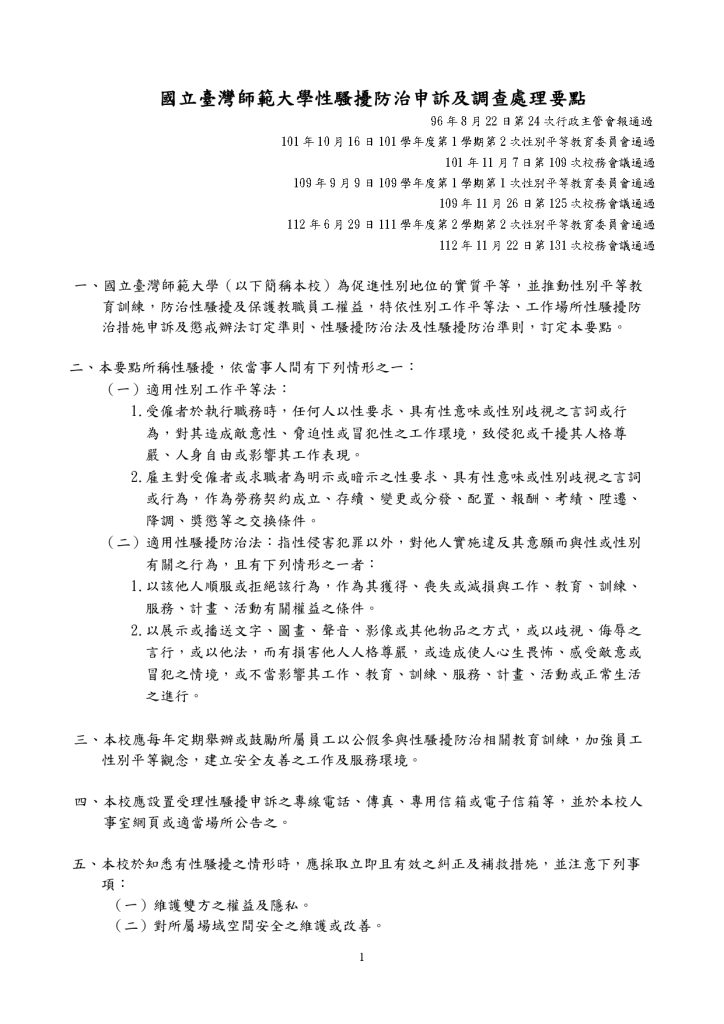2024 SDG 10 English
- 10.2.1 Proportion of first-generation students
- 10.3.1 Proportion of international students from developing countries
- 10.4.1 Number of students with disability
- 10.5.1 Number of employees with disability
- 10.6.1 Non-discriminatory admissions policy
- 10.6.2 Access to university track underrepresented groups applications
- 10.6.3 Access to university underrepresented groups recruit
- 10.6.4 Anti-discrimination policies
- 10.6.5 University diversity officer
- 10.6.6 Support for underrepresented groups
- 10.6.7 Accessible facilities
- 10.6.8 Disability support services
- 10.6.9 Disability access scheme
- 10.6.10 Disability accommodation policy
- 10.6.11 Anti-harassment policy
10.2.1 Proportion of first-generation students
According to OECD statistics, the average higher education attainment rate among the 25-64 age group across member countries was 40% in 2020. By the end of that year, Taiwan had reached a higher rate of 54%, indicating a significantly higher education level among its population. In this context, the NTNU welcomed 1,829 new undergraduate students in 2023, including 259 students who are the first in their immediate family to attend university, accounting for 14.16% of all new entrants.
2022年 | 2023年 | |
Total number of students | 14,030 | 14,080 |
Number of students starting adegree | 1,855 | 1,829 |
Number of first-generation students starting a degree | 263 | 259 |
The proportion of total number of students | 1.87% | 1.84% |
The proportion of first-generation students | 14.17% | 14.16% |
10.3.1 Proportion of international students from developing countries
1.In the 2022 academic year, the total number of international students (including international students, overseas Chinese students, and students from mainland China) was 1,626 in the first semester and 1,519 in the second semester. Additionally, the number of international students from developing countries was 810 in the first semester and 743 in the second semester.
References: Countries classified as low-income by the World Bank; Countries classified as lower-middle-income by the World Bank.
2.The University offers various avenues of financial support for students from developing countries, such as the Dream Fund Scholarship and scholarships for international students. In 2023, the Dream Fund Scholarship assisted 207 students, totaling NT$2,070,000. In the 2022 academic year, 333 international students from lower-middle-income countries received scholarships.
Total uumber of students | Total International Students | International Students from Developing Countries | International Students from Developing Countries (Received scholarship) | |
2023 | 14,080 | 1519 | 743 | 333 |
10.4.1 Number of students with disability
The university has consistently enrolled students with disabilities over the years. As of the second semester of the 2023 academic year, 104 students with disabilities were out of a total student population of 15,529, resulting in a proportion of 0.6%.
| 2022 academic year | 2023 academic year |
Number of students with disability | 150 | 158 |
Total number of students | 14030 | 14080 |
Proportion of students with disability | 1.06% | 1.12% |
10.5.1 Number of employees with disability
As of January 2023, our university employed a total of 3,785 staff members, including an estimated weighted count of 158.82 staff members with disabilities, which constitutes 4.17% of the total workforce.
Reference: Overview of required employment numbers for persons with disabilities for the 2023 academic year
| 111th academic year | 112th academic year |
Number of employees with disability | 150 | 158 |
Number of employees | 3734 | 3785 |
Proportion of employees with disability | 4.01% | 4.17% |
10.6.1 Non-discriminatory admissions policy
The university has established “Guidelines for Implementing Gender Equality Education,” which state (Article 4) that admissions and enrollment must not discriminate based on gender, gender characteristics, gender identity, or sexual orientation. In this regard, data from the 2023 academic year shows that 8,299 female students and 7,458 male students enrolled, resulting in a gender ratio of 1.11.
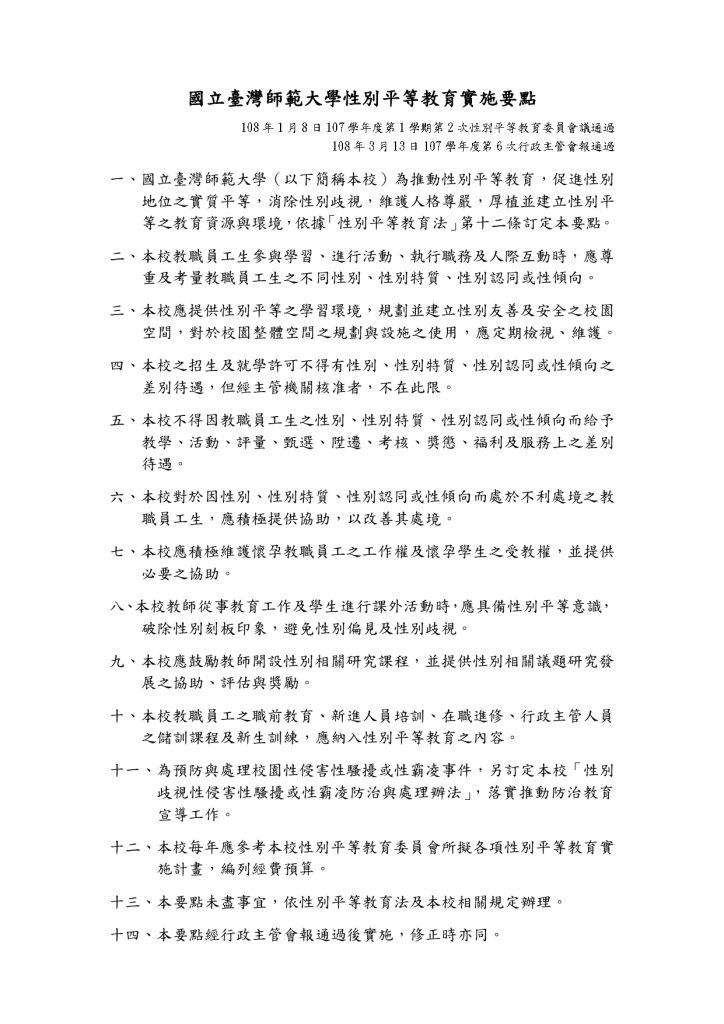
10.6.2 Access to university track underrepresented groups applications
The university provides multiple admission pathways for disadvantaged students due to economic or cultural factors. The Office of Academic Affairs compiles annual enrollment quotas and admissions statistics to monitor these trends. In the 2022 academic year, economically and culturally disadvantaged students accounted for 17.96% of first-year new students.
Admission Pathway | Underrepresented student categories | Admitted students (persons) | Registered students (persons) |
The Star Project | General Students | 282 | 272 |
Additional Indigenous Quota | Indigenous Students | 61 | 40 |
Additional Offshore Iland Quota | Students with Disabilities
| 28 | 21 |
Special Entrance Exam for Students with Disabilities | Students with Disabilities | 36 | 19 |
The Morning Light Program | Economically Disadvantaged (Low-income, Special Circumstances Families), Culturally Disadvantaged (Second-generation Immigrants) | 54 | 12 |
Total | 461 | 367 | |
10.6.3 Access to university underrepresented groups recruit
1.The university encourages departments to hire underrepresented staff members according to relevant regulations:
(1). Employment of Persons with Disabilities: Each department must employ at least 3% of individuals with disabilities according to the “Implementation Plan for Hiring Persons with Disabilities” and prioritize hiring disabled students for work-study positions to protect their rights.
(2). Gender Equality Committee: The composition must adhere to a principle that no gender constitutes less than one-third of its members.
2.The university also implements specific programs to recruit underrepresented students:
(1). Morning Light Dual-Pathway Admission Program: This program offers priority admission for economically or culturally disadvantaged students each year.
(2). Dormitory Allocation Policy: International students and those with disabilities receive priority for dormitory assignments.
10.6.4 Anti-discrimination policies
The University has established “Guidelines for Implementing Gender Equality Education” and “Policies for Preventing and Addressing Sexual Discrimination, Harassment or Bullying,” promoting gender equality concepts and ensuring all staff and students have safe and equal opportunities for education and work.
Additionally, the University has established related regulations, such as the “National Taiwan Normal University Sexual Harassment Prevention Complaint and Investigation Procedures,” to prevent sexual harassment and maintain student rights through complaint hotlines and services.
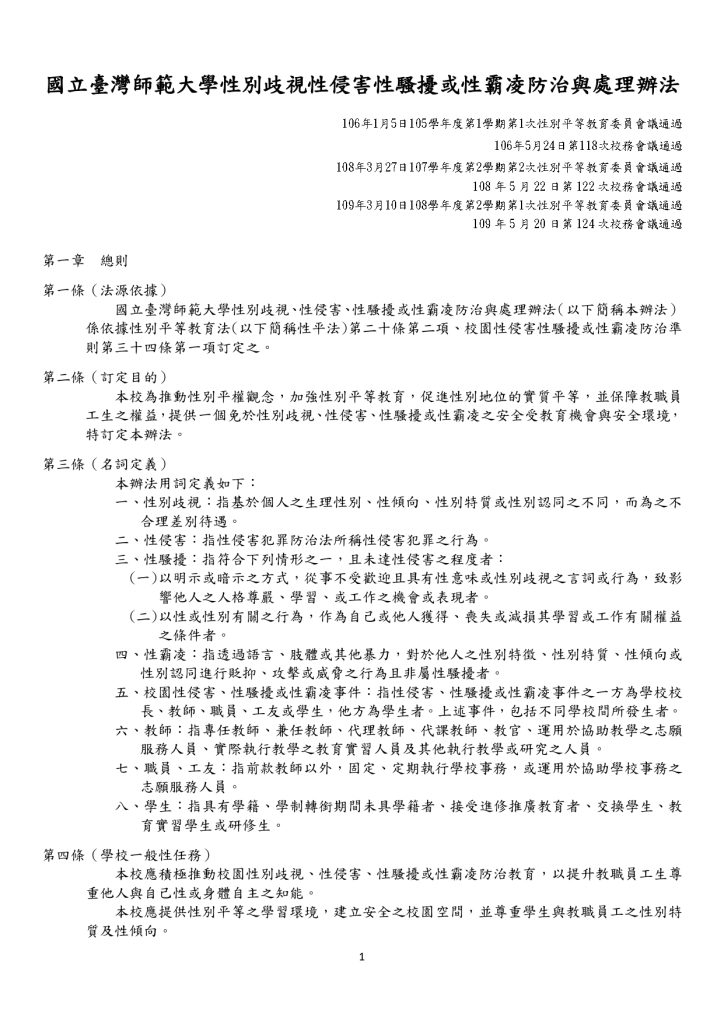
10.6.5 University diversity officer
The Human Resources Office, Student Affairs Office, Teaching Development Center, and International Affairs Office oversee diversity and equity initiatives while promoting related activities:
- Human Resources Office: Established a committee to address complaints regarding discrimination and unfair treatment; promotes employee assistance programs to create a supportive work environment.
- Student Affairs Office: Operates an Indigenous Student Resource Center providing support services for Indigenous students.
- Teaching Development Center: Manages student tutoring programs.
- International Affairs Office: Provides support services for international students.
Additionally, various committees such as the Standing Committee on University Affairs Meeting, Special Education Center Committee, Gender Equality Education Committee, Special Education Implementation Committee, Joint Education Committee, and Research Ethics Review Committee collectively enhance rights for staff and students while providing support services for underrepresented groups.
10.6.6 Support for underrepresented groups
1. The Student Affairs Office collaborates with various departments and resources to provide living assistance programs for underrepresented groups, including tuition waivers and various scholarships totaling NT$214 million, which were served to 19,138 individuals in 2023.
Reference: Statistical table of living assistance programs.
2. The University has a comprehensive three-tier counseling mechanism targeting individual counseling management services for students with disabilities:
Case Type | Gender Diversity | Students with Disabilities | Indigenous Students | International Students | Exchange Students | Mainland Chinese Students | Overseas Chinese Students
|
Number of Individuals (persons) | 2 | 9 | 12 | 24 | 4 | 14 | 64 |
Number of Service Instances (persons) | 15 | 79 | 63 | 135 | 13 | 113 | 350 |
In addition to managing cases for disabled students, the University also serves diverse needs by organizing workshops such as one support workshop focused on coming out experiences attended by two participants and one cross-cultural adaptation growth group attended by thirty-four international students.
Case Type | Gender Diversity | Students with Disabilities | Indigenous Students | International Students | Exchange Students | Mainland Chinese Students | Overseas Chinese Students
|
Number of Individuals (persons) | 4 | 13 | 10 | 24 | 13 | 7 | 61 |
Number of Service Instances (persons) | 37 | 71 | 40 | 182 | 54 | 35 | 306 |
Reference: Underrepresented group workshop and poster.
3. The University assists learning-challenged or special-needs students through programs like “The Student Academic Counselor Learning Reward Program” and “the Academic Counseling Learning Community Program,” optimizing counseling effectiveness through collaboration with faculty members.
4. The “Morning Light Learning Counseling Program” provides additional learning opportunities for disadvantaged students through direct interaction with teachers in courses or research activities.
10.6.7 Accessible facilities
The University is committed to improving campus accessibility by meeting environmental inspection standards:
1.The General Affairs Office publishes an accessible campus map detailing facilities available on campus.
2.The General Affairs Office continuously reviews and improves accessibility facilities annually; in 2023, improvements included ramps and elevators in various buildings.
3.The Human Resources Office assesses available support resources regarding employees with disabilities according to guidelines from the Ministry of Education.
4.The Health Center provides borrowing services for crutches and wheelchairs as needed by faculty or staff.
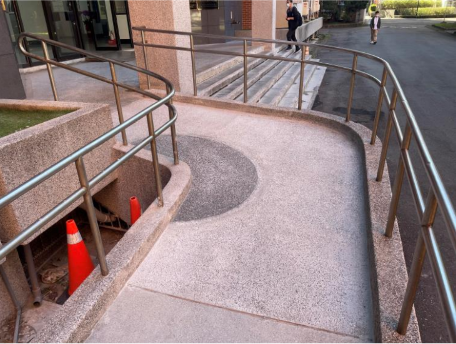

Improvement of slopes and elevators at the Institute of Science and Technology
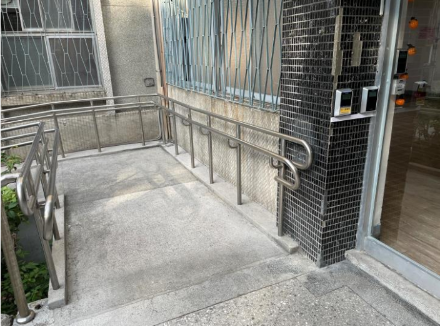
Female dorm 2 improvement location of card machine
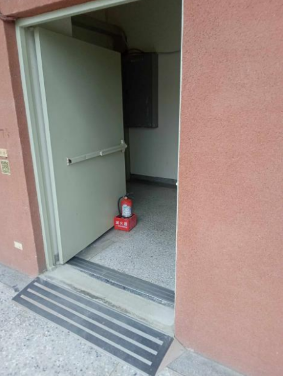
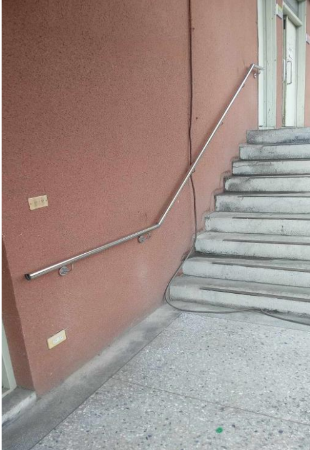
The threshold of the art department elevator exit, Fifth floor elevator handrail
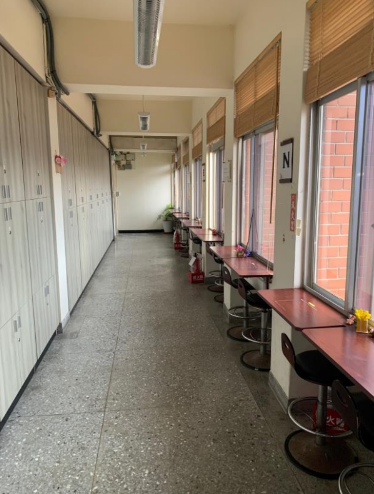
The improvement of the entry and exit routes in the audio-visual classroom of the English Department
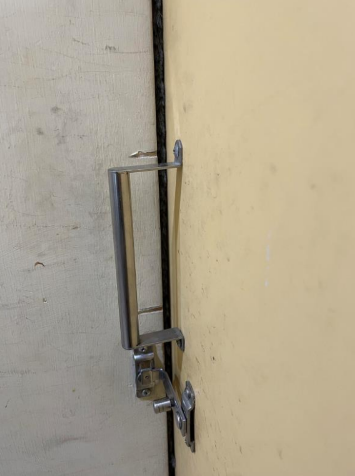
Accessible toilet in education building improves door panel gap
10.6.8 Disability support services
1. The Special Education Center, established in 1974, has a long history of dedication to research, consultation, guidance, and promotion of special education. The center’s resource room provides individualized support services to students, including academic, psychological, life, and career counseling, with a total of 3,234 sessions. In 2023, 156 individualized support service plan meetings were held, serving 495 individuals and providing 960 hours of care and activities to 28 students with disabilities. Additionally, through research and outreach projects, the center offers diverse and innovative support services for individuals with disabilities.
Reference: 2023 Resource Room Annual Report
2. The University adopts various measures to support students with disabilities fully. In 2023, it received a grant of over NT$3.8 million from the Ministry of Education’s “University Program for Enrollment and Support of Students with Disabilities” to provide diverse counseling and assessment services to help students develop individualized support plans, adapt to campus life, and address psychological, academic, social, and employment challenges.
3. According to the University’s dormitory management guidelines, international students, overseas Chinese students, students with disabilities, and students from low-income families are given priority for dormitory allocation, ensuring they have safe and convenient living conditions. Through these measures, the University is committed to assisting students with disabilities in completing their studies and promoting educational equity.
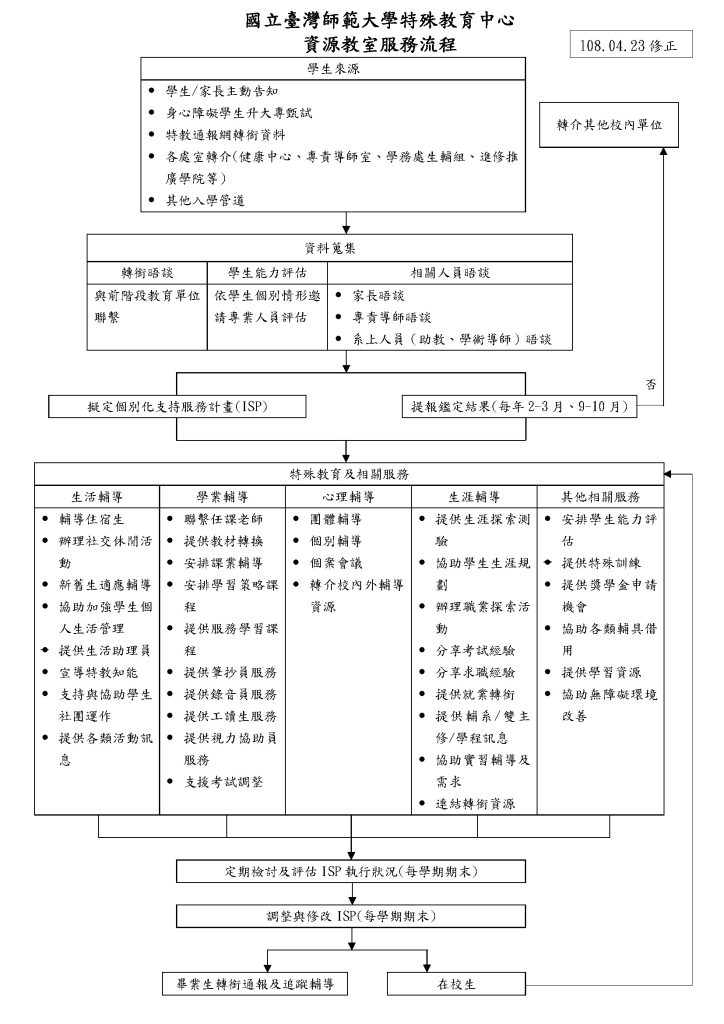
10.6.9 Disability access scheme
The Resource Room of the Special Education Center offers a wide range of services, including academic tutoring, learning strategy courses, service-learning courses, note-taking assistance, individual consultations, psychological counseling, career and transition guidance, and help with daily care and activities. In 2023, the center provided 2,464 academic counseling sessions, 557 psychological counseling sessions, and 213 career and transition guidance sessions. 79 student assistants were hired, serving 46 students with disabilities for a combined total of 3,124 service hours.
In collaboration with the government, the University has also established an “Adaptive Physical Education Development Center,” which provides adaptive physical education classes for students with disabilities. This center benefits 43 students.
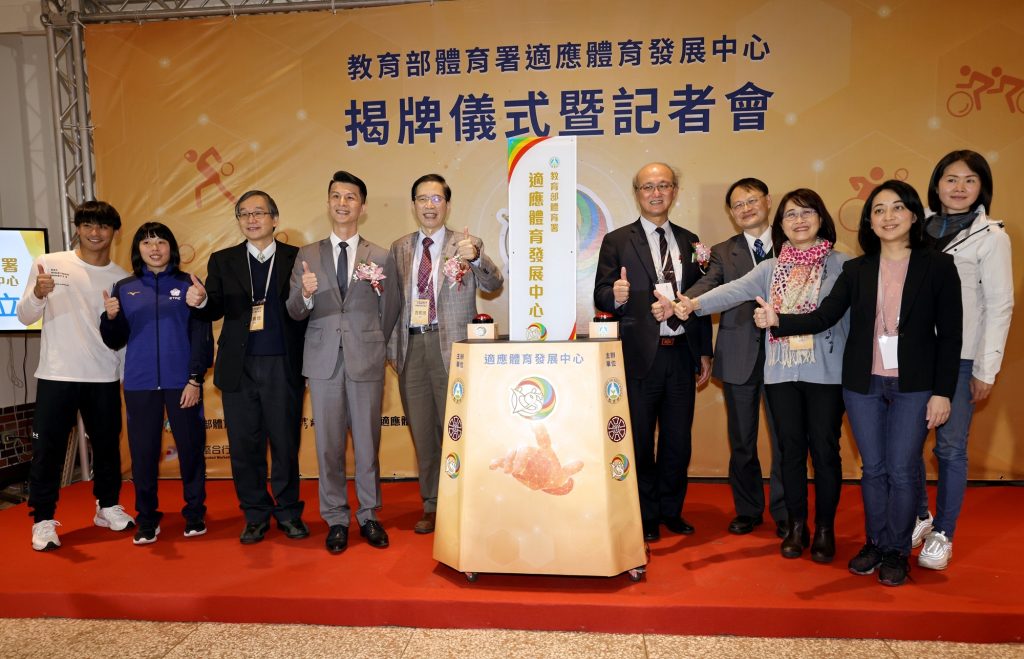
10.6.10 Disability accommodation policy
The University provides the following reasonable accommodations based on the needs of students with disabilities:
1.The assistance program for disadvantaged students offers discounts on on-campus accommodation, covering all dormitories within the campus, regardless of the accommodation fee level, with full subsidies provided.
2.Adjustments in learning assessments, conversion of teaching materials, adaptive physical education courses, assistive devices, accessible dormitories, transportation subsidies, and scholarships.
3.In 2023, we provided 170 instances of learning assessment adjustments, 50 instances of teaching material conversion, 43 students enrolled in adaptive physical education courses, 64 instances of assistive device use, and 36 instances of accessible dormitory use. Additionally, we subsidized transportation for 5 students, amounting to NT$21,600. Scholarships were awarded to 64 students with disabilities, and 28 students received the “Dream Talent Scholarship,” totaling NT$1,602,000.
References:
10.6.11 Anti-harassment policy
The Human Resources Office and the Gender Equality Education Committee have established an anti-harassment policy, “Guidelines for Complaints and Investigation of Sexual Harassment Prevention,” which applies to faculty, staff, and students, by the Gender Equality in Employment Act and the Sexual Harassment Prevention Act. Furthermore, the University mandates that educational training related to sexual harassment prevention be held regularly each year or encourages faculty and staff to participate in such training during official leave, thereby strengthening employees’ awareness of gender equality.
The Gender Equality Education Committee in NTNU aims to promote the establishment of gender equality concepts on campus and to prevent and address incidents of gender discrimination, sexual assault, and sexual harassment, thereby safeguarding the rights and interests of faculty, staff, and students. To this end, the committee has developed a gender incident handling process, which includes investigation application forms, various gender incident notification forms, and standard operating procedures for handling campus gender incidents in departments, all dedicated to creating a safe, educational environment.
